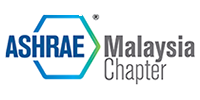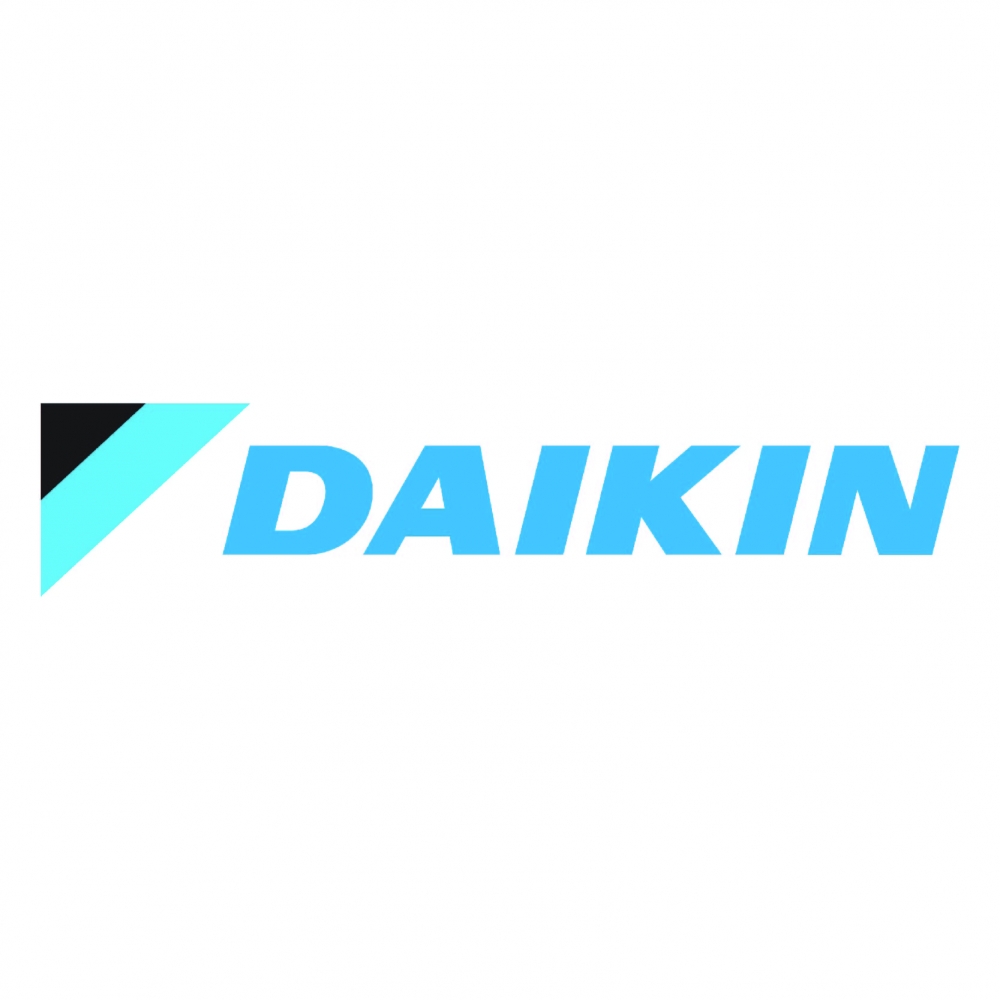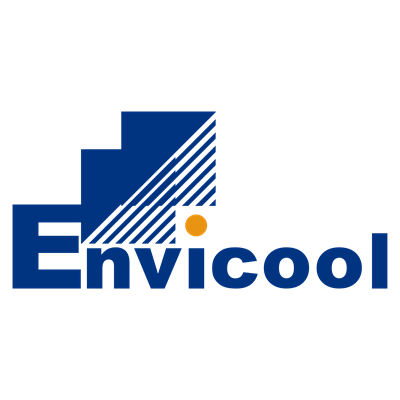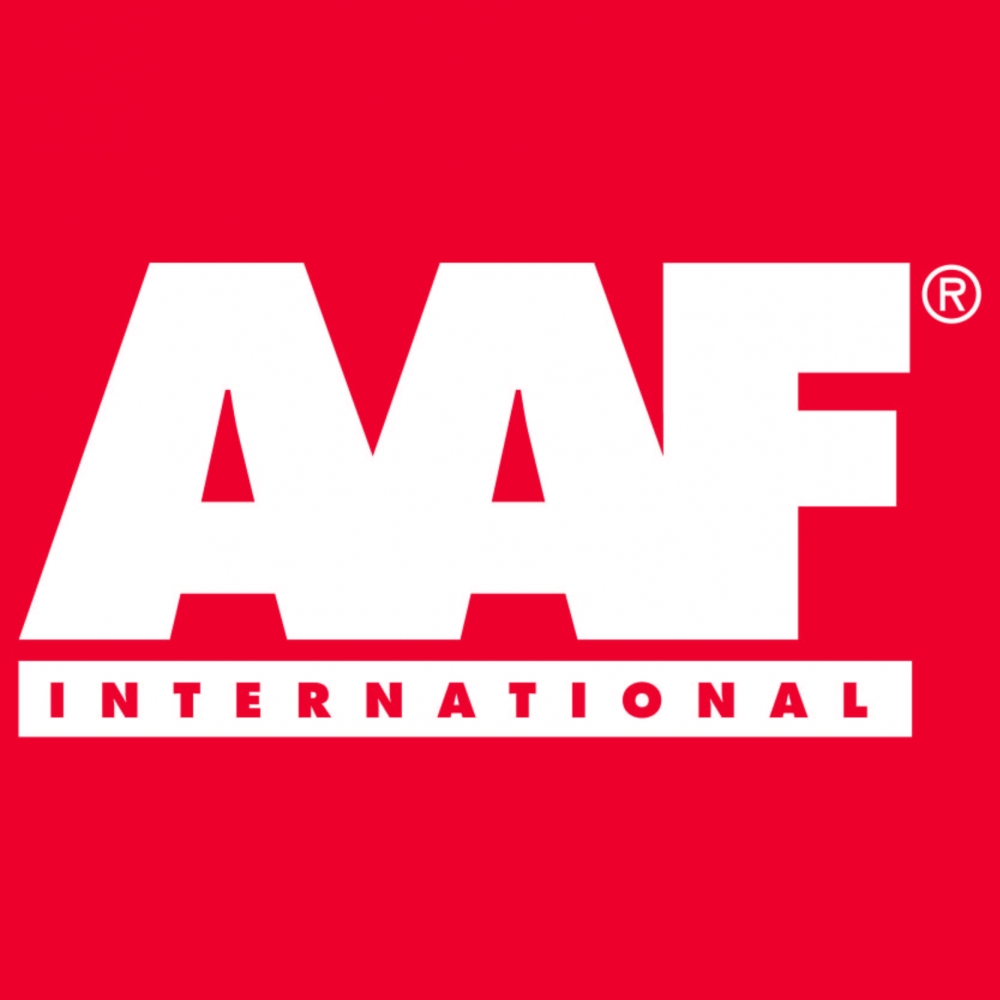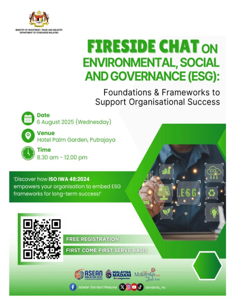
Government Affair
Awareness talk on ISO IWA 48:2024 - Framework for implementing Environmental, Social and Governance (ESG) Principles
Venue: Hotel Palm Garden, Putrajaya
Location:
Putrajaya
Putrajaya
Date: 06 Aug 2025
Time: 8:30am - 12:00pm
| GAC Report | |
| Chapter Chair: | GAC |
| Event: | Awareness talk on ISO IWA 48:2024 - Framework for implementing Environmental, Social and Governance (ESG) Principles |
| Title: | Fireside chat on Environmental, Social and Governance (ESG) |
| Organization: | Jabatan Standards Malaysia (JSM) |
| Organizing Person: | En. Arif Syahmi Bin Mohamad Nor Aripin, Penolong Pengarah, Bahagian Standardisasi, JSM |
| Implementation Agency |
Jabatan Standards Malaysia |
| Date: | Wednesday, 6 August 2025 |
| Time: | 8:30 am to 12.00 pm |
| Place: | Hotel Palm Garden, Putrajaya |
| MASHRAE representatives: | Ir. Leong Siew Meng |
| Organisations invited: | MASHRAE, MIDA, MITI, Ministry of Economy, SIRIM, Institute of Quality Malaysia, etc. |
| Report: | Objective: The main objective of organizing this program was to introduce and discuss the concept and implementation of Environmental, Social and Governance (ESG) comprehensively to organizations. This program will also highlight the role of ISO IWA 48:2024 as one of the reference frameworks in helping organizations implement ESG principles in a structured manner and make a positive impact. International Workshop Agreement 48 (IWA 48) was published by ISO in 2024. It is not a standard. It provides a strategic and operational framework on ESG that aims to assist organisations, of any size and type, to implement and report on their activities, products, services and commitment to support the achievement of sustainable development, social justice and good governance. This document, as an ESG framework, provides overarching principles, a coherent structure and guidance for ESG, so that all interested parties can be reassured that they are working within the same set of principles.This ESG framework is intended to be flexible so it can be applicable to organizations of all sizes, sectors and jurisdictions, while reflecting ch anges in emphasis that can emerge within ESG more widely. This document allows for regional and economic differences, including flexibility for organizations in developing regions and those with limited resources. For example, the framework is designed to be accessible to SMEs and organizations in developed and developing countries, whether they are required to report on ESG or are engaging in ESG on a voluntary basis. The document offers incremental pathways for organizations with limited regulatory oversight or technical capacity, enabling all organizations to engage in ESG practices. |
| Reported by: | Ir. Leong Siew Meng |
